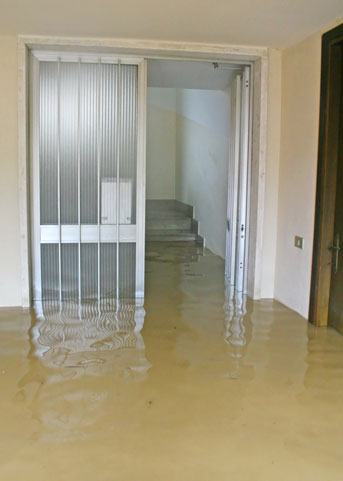Homeowner Insurance Tips
Don’t Take “No” for an Answer
10% of insurance claims are unjustly denied. If your homeowner insurance claim is denied and you know your claim is legitimate, don’t accept the first response -- fight back. Only 1% of homeowners appeal a denied insurance claim -- and more than 50% of those who do appeal get that denial reversed! Most people who query their claim end up getting a better settlement -- even if they are not initially denied.
Always Get It In Writing
If your claim is denied, don’t accept a verbal “no” over the phone -- get it in writing. You’d be surprised how many insurers don’t give a written denial of a claim. Always ask for a written explanation of the reasons the claim is rejected. In many states, it’s the insurer’s legal obligation to provide this.
Read Your Policy
Once you have received the written denial, read your policy carefully. See if there is anything that doesn’t jive. If you find anything in the policy that appears to contradict the reasons for denial, send a written query to the insurer, quoting the documents where necessary. Many times a policy can be interpreted in more than one way, so a well-written query might lead to a reversal.

A Claim Filing Error Is No Excuse for Denial
There is always a prescribed filing process and rules that should be followed in filing your claim. For instance, the claim needs to be filed within a certain time frame. If you make a mistake in the filing process or file late, and the insurance company uses this as the sole reason for denying your claim, there is a good chance this can be reversed. In most legal jurisdictions the insurance company is not allowed to reject a claim because of a filing error if the claim is otherwise valid, unless the company can show that your error either hamed the company or obstructed the investigation of your claim.
Try Asking Your Insurance Agent for Advice
Nothing ventured, nothing gained, right? It’s not likely to do any good, but the agent who sold you the policy might just be a helpful person and may be able to advise you as to who best could help you appeal the denial.
Call the State Insurance Authority
In the U.S., every state has an insurance commissioner or department of insurance. It’s always a good idea to check with them to find out what your rights are.
What Is a Professional Loss Consultant?
Insurance companies use an agent as a middleman, so they don’t have to deal directly with policyholders. A professional loss consultant is an agent you can hire to represent you with the insurer. Most of the time this person will represent you for a percentage of your settlement if you win. They know the insurance industry and have experience dealing with insurers. They may actually be able to increase your settlement amount and thereby pay for themselves. They usually charge about 10-15% of your settlement if you win. But read their contract carefully before signing. There is sometimes a fee if you lose, and there may also be legal fees tacked on, which could eat up a significant amount of your award.
Get Yourself a Lawyer
The most effective way of dealing with a recalcitrant insurance company is through an attorney. When a lawyer contacts an insurance company, they usually take notice and are more responsive. In some cases, your attorney will work on a contingency basis if he believes your claim was valid. Other times an attorney will charge you by the hour, and this can be costly. Make sure you find out in advance what the financial arrangements will be. Obviously, in most cases you don’t need both an agent and a lawyer; either option may be the best strategy for you.
Persevere
Call and email the company if you don’t hear from them every two-to-three weeks. Deal with them in a polite and professional manner, but be persistent. Ask for a person’s supervisor if you are not getting an adequate response. Keep written records of all communications. If you have a phone conversation, note the date and the name of the person to whom you spoke. If you don’t get an adequate response, follow up with a letter or email recounting the conversation and explaining why the response was not acceptable.
Of course, there are no guarantees that these tips will result in success, but information is always a powerful ally. Remember, less than 1% of people whose claims are rejected fight back, and more than 50% of those who do fight back get their denial reversed!
Note: every state and country has its own rules and regulations concerning insurance claims, so do check the prevailing laws in your locale before following the ideas on this list.
The above tips are brought to you by James K Sadigh, accident lawyer Los Angeles. James Sadigh has a long and proven record of reversing insurance claim denials for homeowners.
©2025 James K. Sadigh Attorney of Law. All Rights Reserved. | Website by TRIXMEDIA